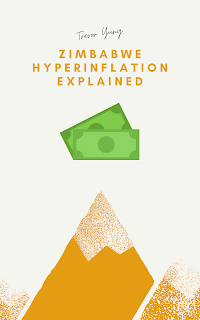A Brief History of Hong Kong
The Pearl of the Orient, the East Asian Tiger and the Fragrant Harbour. These are all names that we call this prosperous city Hong Kong. Hong Kong has had it’s fair share of world events including war and occupation. But what makes Hong Kong so special is how it runs, the people and culture. In this article I want to talk about how 100 years of British influence has affected Hong Kong and I'll give you in depth information about this city that may as well be a country.
The beginning:
Before the British arrived, Hong Kong was just a small fishing village and was a pirate haven. There were also an abundance of thieves and smugglers as Hong Kong was a strategic port in the outer coast of the Guangdong strait port.The Portogese who visited the island called it, ‘Ladrones’ The island of thieves. British traders visited the port often and made a deal with the imperial government in exchange for driving out the pirates. This helped establish a good link with the Chinese government. The British also got a settlement in Macau. The names of these pirates are still famous in the Pearl River Delta. Ching I and his wife Madame Ching ruled the pirate confederation, the red flag fleet and wrecked havoc among small towns. The relations with Great Britain and China were improving as trading porcelain, silk and tea bags for silver emerged.
Problems emerge:
But things took a turn for the worst when the government of China restricted all trade to one of the ports of Canton. (The Chinese also taxed the British with very high rates.) As covered in one of my articles; the British were going broke and only being able to trade in silver was really only sinking them into debt. (Note: The East India Company was now broke. And the British had lost access to their precious silver mines in South America.) They found out that their lands in India were perfect to grow Opium, a drug that the Chinese were addicted to. When the Chinese government found out about this, they burned down the British stores of Opium and fired on British ships. When the British came back with their powerful navy, they literally wrecked the Chinese navy that they won the opium war. The Chinese were forced to lease Hong Kong Island to the British and abolish the Canton trading restrictions. The British that began to create churches and train missionaries to spread the idea of Christianity.
The British begin to do something:
The British that began to colonize Kowloon and the New territories to create a buffer zone for Hong Kong island. (for 99 years) Hong Kong began rapidly industrializing as the British brought their cultures ideas and even food and technology with them. Hong Kong also improved its military, government and education. (like now!)
Problems emerge:
During the Chinese Civil war when Mainland China was becoming more and more unstable, thousands flocked to Hong Kong for safety. When world war two came along, and Hong Kong as invaded by the Japanese, over 1 million people fled the city. Hong Kong had to also endure a grueling 3 years under strict Japanese military rule. After the invasion, the British (now weaker) took Hong Kong again. After WW2, the Chinese civil war started again and many wealthy business owners fled to Hong Kong to avoid the growing communist influence in Mainland China. Inequality skyrocketed as hundreds of thousands flocked to the island of Hong Kong. Poverty and disease were common and it was common to see people living in extremely dense living quarters.
Things get better:
Those things turned out to actually improve. Under the British rule Hong Kong began rapidly modernizing and industrializing. Hong Kong Began to form a new community with better education, health and entertainment facilities. Hong Kong’s economy was also improving and growing under the British rule. During the 70’s, it began to hit landmarks such as equal rights for men and women and reducing taxes. Life expectancy rose and with it corruption in the city fell.
Uncertainty:
In 1997, when the deal was over, there were some uncertainties over what Hong Kong would be next. Margent Thatcher (the prime minister of the U.K) secured a deal with China with a 50 year handover period. The "one country two systems" are still in session with Hong Kong having its own economy, currency, passport and even its own dialect (Cantonese). It is still widely regarded as a country. But still, nobody can predict the future of Hong Kong, will it be ‘taken’ back by China or will the system stay as it is? Nobody knows…



Comments
Post a Comment